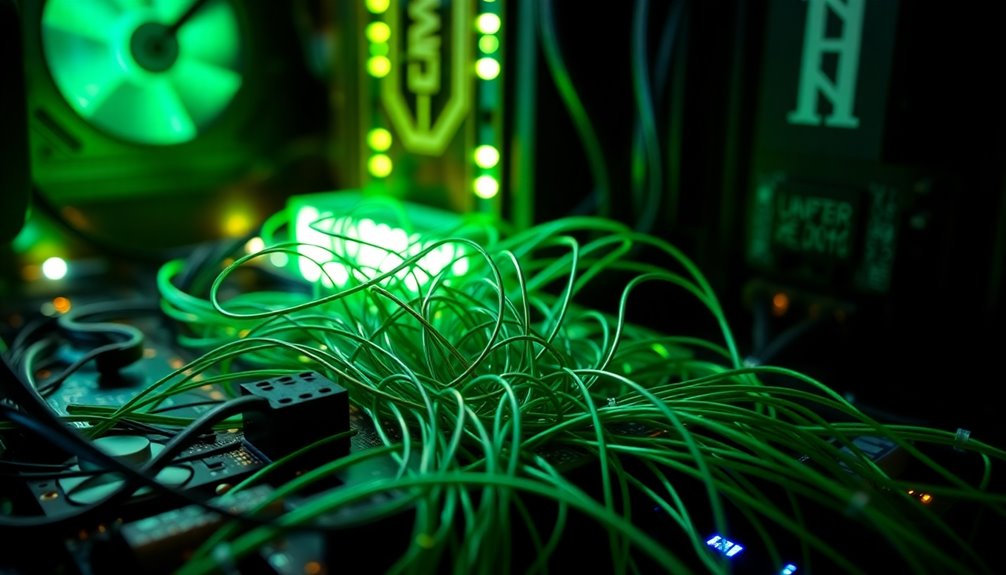A guide to blockchain addresses helps you understand the unique strings used for cryptocurrency transactions. Each address is derived from a public key and varies by cryptocurrency, like Bitcoin's P2PKH or Ethereum's "0x." It's important to ensure accuracy when sharing these addresses, as transactions are irreversible. You can enhance your security by generating multiple addresses for different transactions. Be mindful of address case sensitivity, especially with Bitcoin. Plus, understanding the differences between hot and cold wallets can further protect your assets. There's a lot more to discover about ensuring safe and effective transactions.
Key Takeaways
- Wallet addresses are unique identifiers derived from public keys, essential for secure cryptocurrency transactions.
- Different cryptocurrencies have unique address formats, impacting transaction fees and security.
- Always double-check wallet addresses before transactions, as errors are irreversible and can lead to asset loss.
- Use new addresses for each transaction to enhance security and privacy.
- Hot wallets provide convenience for quick access, while cold wallets offer enhanced security for long-term storage.
Key Components of Wallet Addresses
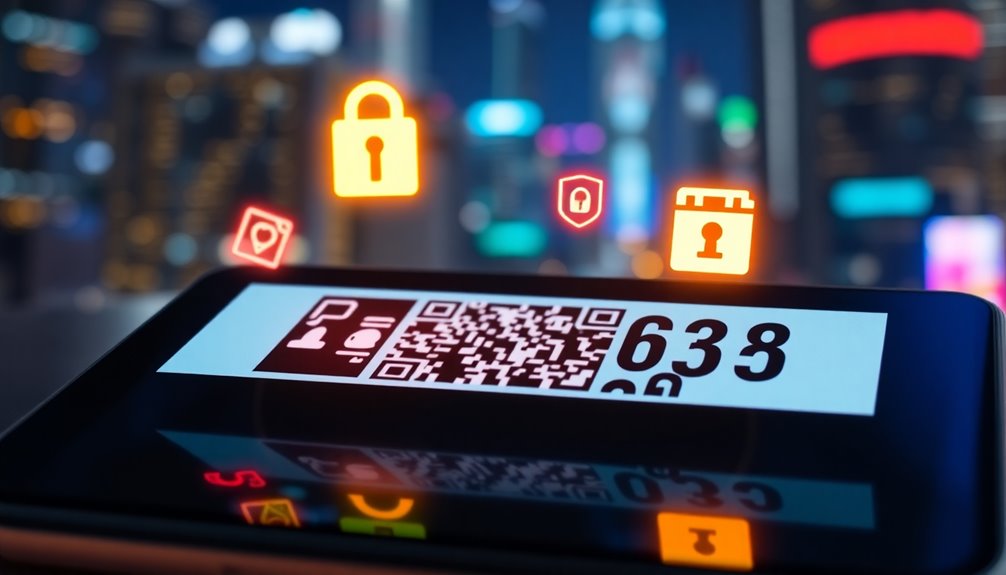
When you dive into the world of cryptocurrencies, understanding wallet addresses is essential. A wallet address acts as a unique identifier for sending and receiving cryptocurrencies on various blockchains like Bitcoin and Ethereum.
It's derived from a public key through complex hashing processes, ensuring you can't reverse-engineer the private key from it. Different address formats, such as Legacy, SegWit, and Compatibility for Bitcoin, each have implications for transaction fees and security.
You can generate multiple addresses for enhanced privacy, keeping your transaction history secure. Be mindful of case sensitivity—Ethereum addresses are case-insensitive, while Bitcoin addresses are not.
Accurate input is crucial to avoid costly transaction errors. Understanding these components will enhance your cryptocurrency experience.
Wallet Addresses: Essential Crypto Identifiers
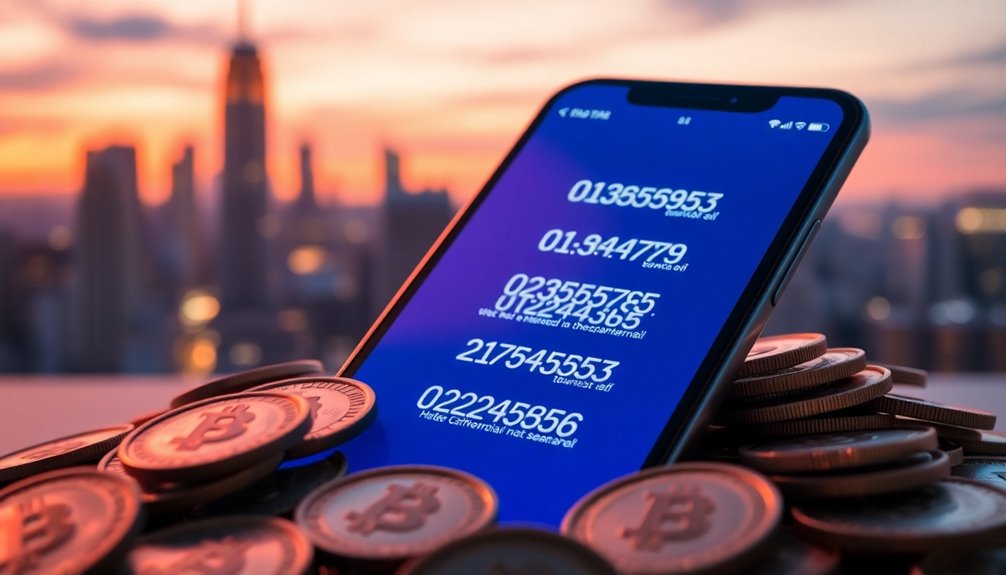
Wallet addresses serve as the essential identifiers in the cryptocurrency landscape, allowing you to send and receive digital assets securely. Each wallet address is a unique string of characters derived from your public key, ensuring your private key remains confidential.
Different cryptocurrencies have various address formats, like Bitcoin's P2PKH or Ethereum's "0x" addresses. While sharing your public wallet address is safe for receiving funds, always follow best practices to prevent sending to incorrect addresses, as blockchain transactions are irreversible.
For enhanced security and privacy, consider using new addresses for each transaction rather than reusing them. This way, you protect your assets and maintain anonymity in the ever-evolving crypto ecosystem.
Transaction Verification Process

Sending and receiving cryptocurrency involves more than just having a wallet address; it also requires a reliable transaction verification process. This process takes place within a blockchain network, where nodes validate cryptocurrency transactions using cryptographic algorithms.
Each transaction must be confirmed by a consensus mechanism, like Proof of Work, ensuring that nodes agree on its validity. Once you initiate a transaction, it's broadcasted to the network, allowing miners or validators to check for sufficient funds and adherence to protocol rules.
After successful verification, the transaction gets grouped into a block and added to the blockchain, creating an immutable record. This entire process fosters transparency and trust, preventing issues like double-spending and unauthorized access to your funds.
Pros and Cons Overview

While blockchain addresses offer numerous advantages, they also come with certain drawbacks that users should consider.
On the pro side, wallet addresses facilitate quick transfers and enhance privacy and security through pseudonymous transactions. Each transaction is recorded transparently on the blockchain, allowing for accountability without revealing your identity. You can also generate multiple addresses for different transactions, further protecting your assets.
However, the cons include the risk of loss of assets if you send funds to an incorrect address, as transactions are irreversible. Additionally, address case sensitivity can lead to errors, potentially costing you your funds.
Weighing these pros and cons is crucial when engaging with decentralized applications and managing your blockchain activities.
Wallet Types: Hot Vs Cold
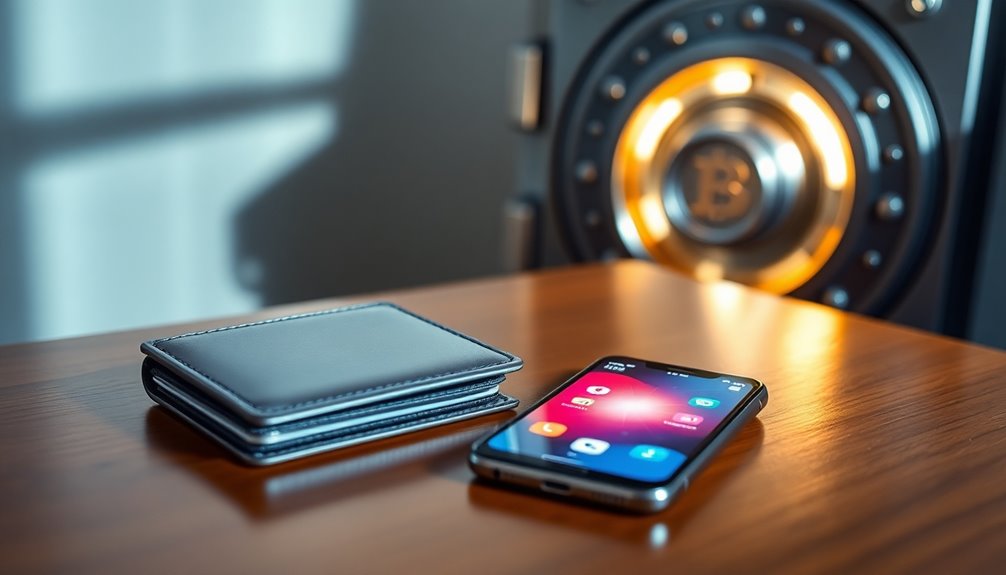
When choosing how to store your cryptocurrencies, it's essential to understand the difference between hot and cold wallets.
Hot wallets, like software wallets and web wallets, prioritize convenience, allowing you to quickly access your funds for transactions. However, their internet connectivity makes them more vulnerable to hacks.
On the other hand, cold wallets, such as hardware wallets or paper wallets, focus on security by keeping your private key offline. This makes them ideal for long-term storage of larger amounts.
When deciding which wallet type to use, consider your trading habits and security needs. Many users opt for a combination of both hot and cold wallets to balance convenience and security while managing their cryptocurrency wallet addresses effectively. Additionally, staying informed about potential regulatory news can help you make better decisions regarding wallet security and cryptocurrency storage.
Security Vulnerabilities in Wallets
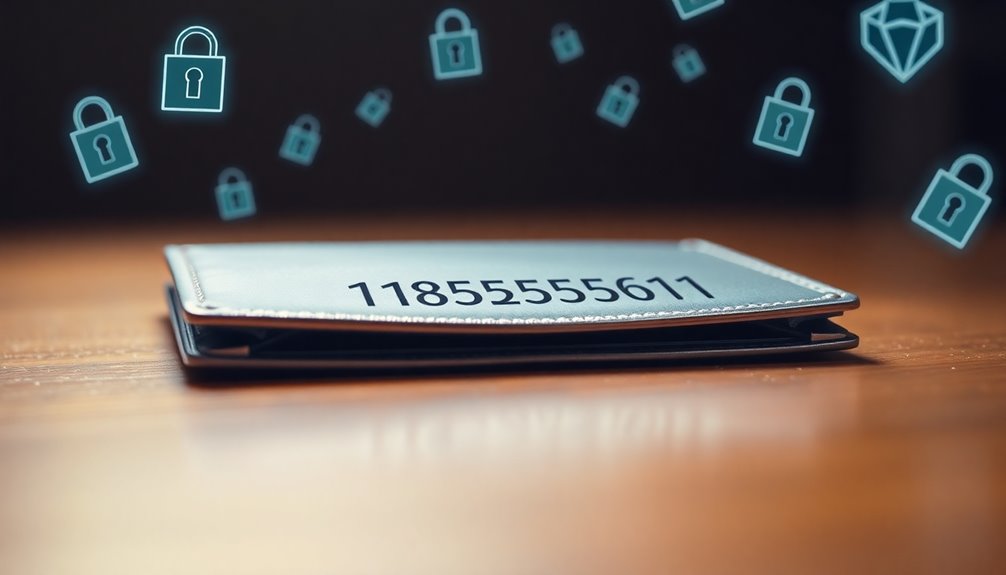
As you navigate the world of cryptocurrency wallets, it's crucial to recognize the security vulnerabilities that can put your assets at risk.
Phishing attacks often trick users into revealing their private keys or recovery phrases on fake websites.
While software wallets offer convenience, they're more vulnerable to malware and hacking due to their internet connectivity.
Hardware wallets are generally safer, but if you don't keep them updated or fall for supply chain attacks, they can be compromised too.
Always be cautious when using insecure Wi-Fi networks, as they can expose you to man-in-the-middle attacks.
To enhance your wallet security, regularly backup wallet data and enable two-factor authentication to significantly reduce the risk of unauthorized access.
Emerging Wallet Address Technologies

With advancements in blockchain technology, emerging wallet address solutions are transforming how you manage your cryptocurrency.
Hierarchical deterministic (HD) wallets are gaining popularity, generating a new address for each transaction from a single seed phrase, enhancing your privacy and security.
The Ethereum Name Service (ENS) simplifies sharing and receiving funds by mapping human-readable domain names to complex blockchain wallet addresses.
Additionally, new cryptographic techniques, like zero-knowledge proofs, improve transaction privacy without sacrificing security.
Cross-chain wallet address solutions are also on the rise, making it easier to handle multiple cryptocurrencies.
Moreover, innovations like multi-signature transactions require several private keys to authorize a transaction, significantly boosting your defense against unauthorized access and potential theft.
Use Unique Wallet Addresses
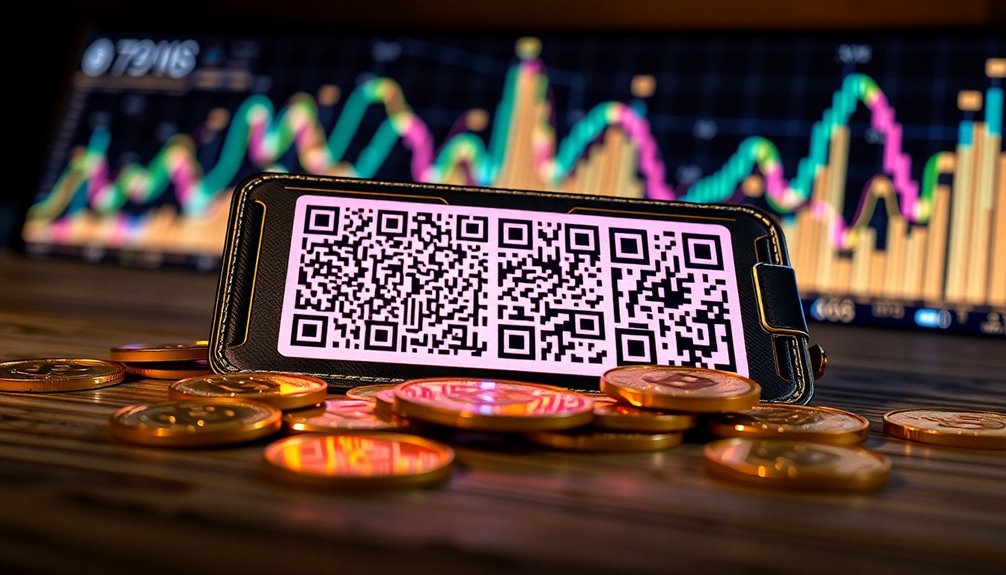
Using unique wallet addresses is vital for secure cryptocurrency transactions. Each address serves as a distinct identifier on the blockchain, ensuring accuracy when you send funds or receive digital assets.
For example, Ethereum addresses typically start with "0x" and are 42 characters long, while Bitcoin addresses range from 26 to 35 characters. By generating multiple unique wallet addresses within the same wallet, you can enhance your privacy and security.
This prevents address reuse, which some wallet applications manage automatically. Sharing a unique wallet address is safe since it doesn't expose your private key, but always double-check the address before sending funds to avoid irreversible losses.
Prioritizing unique wallet addresses helps protect your financial information and maintain anonymity.
Frequently Asked Questions
What Is an Example of a Blockchain Address?
A blockchain address is an alphanumeric string that identifies your wallet on a specific blockchain.
For example, a Bitcoin address might look like this: 1A1zP1eP5QGefi2DMPTfTL5SLmv7DivfNa, while an Ethereum address always starts with "0x," like this: 0x742d35Cc6634C0532925a3b844Bc454e4438f44e.
When sending or receiving cryptocurrencies, make sure you use the correct address for the specific blockchain to avoid any issues or lost funds.
How Do I Trace a Blockchain Address?
To trace a blockchain address, you'll want to use a blockchain explorer, like Etherscan for Ethereum or Blockchair for Bitcoin.
Simply input the address into the search bar, and you'll see all associated transactions. You can observe details such as timestamps, amounts, and sender/receiver addresses.
Keep in mind that while the transaction history is public, the identity behind the address mightn't be easily identified without further investigation.
How Do Blockchain Addresses Work?
Blockchain addresses work as unique identifiers for your cryptocurrency transactions. When you generate an address, it's created from your public key using cryptographic algorithms.
You can share this address to receive funds, but keep your private key secure. Different cryptocurrencies have various formats, so make sure you're using the correct one.
All your transactions are recorded on the blockchain, ensuring transparency and security in ownership and transfers.
How Do I Get My Blockchain Address?
To get your blockchain address, start by choosing a reputable wallet app like MetaMask or Coinbase Wallet.
Once you've installed and set it up, you'll automatically receive an address. Log into your wallet and head to the "Receive" or "Deposit" section; your address will be displayed there, often alongside a QR code.
Conclusion
In conclusion, understanding blockchain addresses is crucial for navigating the crypto landscape. By grasping key components and the differences between wallet types, you can make informed decisions about your digital assets. While there are undeniable pros, it's essential to stay aware of security vulnerabilities and emerging technologies. Always remember to use unique wallet addresses to enhance your security. With this knowledge, you're better equipped to manage your cryptocurrencies and protect your investments effectively.

